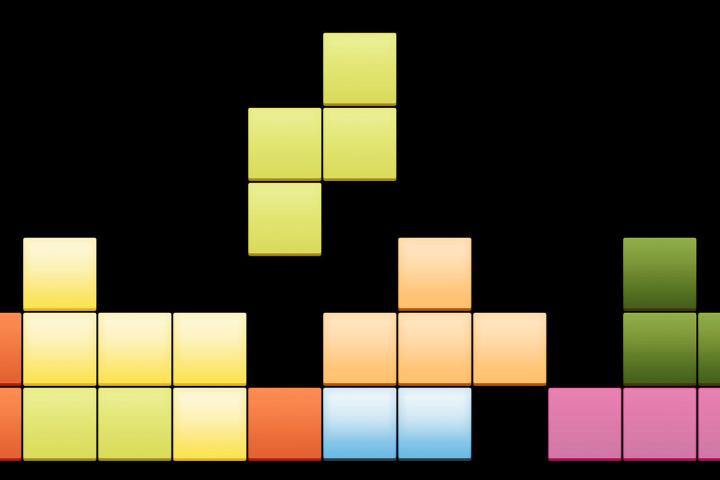
Following a memorable event, there is a window of roughly six hours during which the brain sorts out the memories for long-term storage. Sleeping aids in this process, with current thinking supporting the idea that memory consolidation is one of sleep’s primary functions.
Particularly traumatic events can be stored in such a way that vivid, intrusive flashbacks reoccur frequently, sometimes contributing to full-blown post-traumatic stress disorder (PTSD), particularly in extreme cases such as survivors of rape, torture, military combat, or car accidents.
Reheated memories
Emily Holmes, of the Medical Research Council Cognition and Brain Sciences Unit in Cambridge, has been looking into Tetris as a way to help dampen those effects, according to New Scientist. In 2009, Holmes conducted a study showing that people who played Tetris for half an hour immediately after being exposed to traumatic video footage had substantially fewer flashbacks and scored lower on a standard PTSD assessment test.
While that was a promising result, it hinged on people playing the game immediately following a traumatic event, which is obviously not always feasible. Holmes and her team continued that work more recently with a follow-up study to see whether similar results could be achieved after that crucial window has passed. 56 participants watched distressing video footage and were then sent home to sleep on it. A day later, after the memories had been codified, the subjects returned to the lab and looked at still images from the videos in order to reactivate the memories, making them more malleable. “It’s a bit like hard plasticine that’s a certain shape,” explained Holmes. “When you warm it up, it becomes malleable and you can start reshaping it.”
Half of the participants then played Tetris for 12 minutes while the other half sat quietly. In the following week, the group that played Tetris demonstrated very similar results to those from the initial study, experiencing fewer than half as many intrusive memories and scoring lower on standard PTSD diagnostics.
Paging Dr. Mario
So how does stacking colorful blocks deflect traumatic flashbacks? Holmes suspects that it has to do with our limited bandwidth for visual processing. Tetris is very demanding of our visual cortex, and as a result, when people play it during periods of memory formation, it acts as a sort of “cognitive blockade,” eating up our brain’s resources and thus diminishing the strength of the visual components of traumatic memories.
The resulting memories are still there, but are less vivid, and thus less easily triggered. Holmes suspects that other visually-intensive games such as Candy Crush could serve a similar purpose. Little did Nintendo suspect that Dr. Mario might offer real medical value one day. Should first aid kits include Game Boys?
Holmes’ team still has a lot of work ahead before it can establish Tetris as a bona fide psychological treatment, but they are already testing it in hospital emergency rooms with people who were involved in car accidents. Even if the effect is small, it’s simple enough to be an extremely useful and easily-accessible tool, according to Holmes. “Think of it like hand washing. Hand washing is not a fancy intervention, but it can reduce all sorts of illness. This is similar – if the experimental result translates, it could be a cheap preventive measure informed by science.”
As for dealing with Tetris-related anxiety, you will probably need to look elsewhere.


